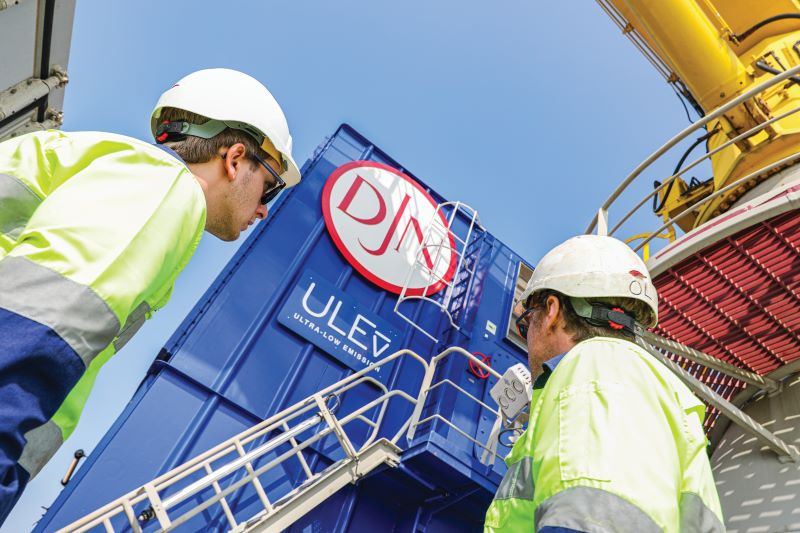Bureau Veritas recognises Jan De Nul vessels as “ultra-low” emitters

Caption: Five Jan De Nul dredgers have received Bureau Veritas' new ultra-low emissions vessel notation (Photo Credit: Jan De Nul)
Five Jan De Nul trailing suction hopper dredgers (THSDs) have become the first vessels to be recognised as having ultra-low emissions according to a new Bureau Veritas (BV) notation. The ultra-low emission vessels (ULEV) notation exceeds regulatory requirements and accounts for air quality, including hydrocarbons, carbon, NOx, and particulate matter, as well as particle numbers.
Jan De Nul’s head of energy, Michel Deruyck, told CEDA Industry News that the BV notation is based on the European Stage V notation, applicable to fluvial transport since 2020.
The dredging and marine engineering company’s new THSDs Sanderus, Ortelius, Tristão da Cunha, Afonso De Albuquerque, and Diogo Cão have been installed with a two-stage catalytic filter system, which, according to a BV statement, can outperform the most stringent low emissions operational policies.
To achieve these credentials Jan De Nul had to be creative in its approach to procuring the necessary equipment. Deruyck said that, “the simple solution was to install Euro Stage V engines in our newbuilding vessels, but at the time we ordered the vessels, no engine maker could offer us such engines”. The first three vessels to be fitted therefore had to be installed with US Environmental Protection Agency Tier 4- standard engines, “which is already very close to the Euro Stage V,” he noted, with an added a diesel particle filter.
“In the meantime one engine maker has engines which are EURO Stage V certified. That simplifies the implementation in our newbuilding projects,” said Deruyck.
Commenting in a statement, BV’s product manager, Patrick Jan, said that the ULEV additional class notation is the most advanced set of requirements regarding the capacity of a ship to emit gaseous pollutants and particular pollutants at a very low level. “It is certainly a significant milestone on the path to reducing maritime environmental impact,” he said.
“Air pollution is a slow and silent killer,” Deruyck stated. “Even in a pandemic year as 2020, air pollution caused more deaths than the virus.” Even if the dredging business contributes only a very small percentage of “global air pollution, we should address it,” he told CEDA Industry News.
Jan De Nul Group is moving towards 100% renewable fuel for its fleet, with one dredger operating solely on biofuel since the end of 2019. It is currently considering this switch for other dredging vessels in its fleet.
While the advice given in this editorial content has been developed using the best information available, it is intended purely as guidance to be used at the user’s own risk. No responsibility is accepted by CEDA or by the Intent Communications Ltd or by any person, firm, corporation or organisation who or which has been in any way concerned with the furnishing of information or data, the compilation, publication or any translation, supply or sale of this Guidance for the accuracy of any information or advice given herein or for any omission herefrom or from any consequences whatsoever resulting directly or indirectly from compliance with or adoption of guidance contained therein even if caused by a failure to exercise reasonable care.